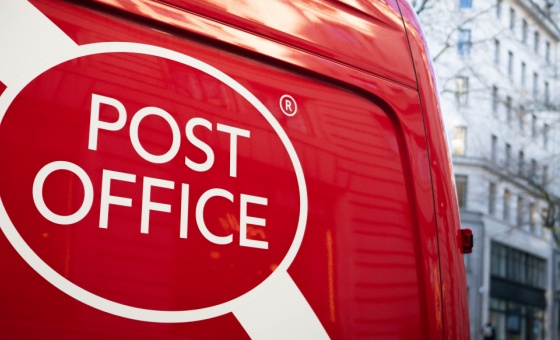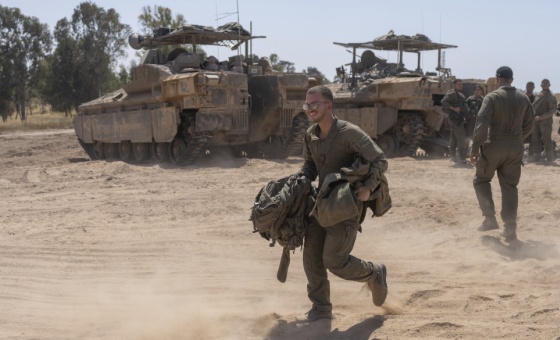This is the last article you can read this month
You can read more article this month
You can read more articles this month
Sorry your limit is up for this month
Reset on:
Please help support the Morning Star by subscribing here
Last December Scottish TV screened a documentary by David Gillanders called Knife Crime: Winning the War.
The first part was shot 10 years ago when Gillanders accompanied an ambulance crew to Easterhouse in east Glasgow where he saw the gruesome injuries and deaths from gang violence several times a week and sometimes several times a night.
A year ago he repeated his coverage and in six months witnessed only two serious incidents. The police have reported a 57 per cent decline in gang violence.
What has promoted this radical reduction? Gillanders praises the police and medical staff but adds that particular credit must be given to local community groups, such as Family Action in Rogerfield & Easterhouse (Fare).
Twenty-five years ago, 30 local residents, including myself, formed Fare. I was chosen as part-time leader and we developed our youth and family work - including making relationships with members of a local gang.
In 1996, Fare moved into six hard-to-let flats. I became a volunteer, with Rosemary Dickson appointed as leader.
She developed a strategy to reach all 14 gangs in Easterhouse. Fare held workshops in schools, made contacts with gangs in all areas and brought them together in joint activities.
Crucially the staff were a mixture of experienced youth workers and former gang participants.
These days Fare now focuses less on gangs and more on poverty.
Easterhouse has long been one of the 5 per cent most deprived areas in Scotland.
The coalition government has taken billions of pounds from the welfare budget and then blamed the poor for their poverty.
Low-paid workers have also suffered as the cost of food and fuel have risen way above inflation. In 30 years in deprived areas I have never seen so many hungry people, so many in debt, so many families in extreme poverty.
Fare has come up with a number of responses.
For example it runs an infants' stall selling cheap baby food, children's clothes and nappies. Some parents can afford just one nappy.
Each Christmas, Fare distributes 900 food parcels to elderly people. One man wept because having to spend a bit less on food meant he could keep the heating on longer.
A Fare-organised foodbank is also on the way, planned in co-operation with local churches.
Easterhouse Baptist Church's volunteers also run a well-attended cafe on Thursdays. Drinks and fruit are free. Cooked snacks are cheap. Some people stay the whole time to keep warm.
Volunteers are also on hand to chat with the lonely or help the needy. For instance, a mother with no money to feed her family, a father whose benefits have been delayed, a disabled man whose washing machine has broken down and cannot afford to get it repaired, a couple offered a dry flat but unable to pay a month's rent in advance.
The Citizen's Advice Bureau is lending Fare a welfare rights officer to ensure that recipients of welfare get their full benefits and help those appealing against harsh decisions.
The group Friends of Fare consists of over 100 individuals whose gifts have enabled parents to buy shoes and clothes for school children, have allowed some to pay rent arrears and have kept others out of the hands of loan sharks and so on.
Fare runs various holidays and a large summer camp. Last year, a number of families could not afford the fee and the Friends made sure that everyone went.
Fare has a staff of over 20, making it one of the biggest employers in the area. Most are part-time and local. New staff have to attend courses and gain qualifications. In addition there are 10 apprentices aged 16-18 who are trained in youth work, community work or clerical and financial work. After 12 months, Fare helps them apply for jobs.
When elected, David Cameron boasted that he was launching the "big society."
What nonsense. A survey by the Scottish Council for Voluntary Bodies showed that 77 per cent expect yet more demands on them with no increases in their funds.
Indeed some are closing. Fare is just one of many local groups and all are experiencing reductions from the council.
Fare has had to make three staff redundant. The rest of the workers then took a cut in their modest salaries so that their colleagues could be retained.
The Labour Party should sort out its policy for the voluntary sector. I suggest it gives priority to charities run by local people in areas of high deprivation.
It should be cautious about those with managers whose huge salaries reinforce poverty and inequality.
Local groups are essential in that they use the abilities of residents to strengthen others. But they are not the answer to poverty and inequality.
This requires a government - whether in Westminster or Scotland on its own - to set a living income and a commitment to reduce inequality so that the highest wage earners receive no more than three times the lowest.









